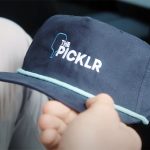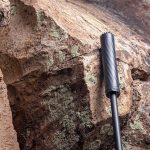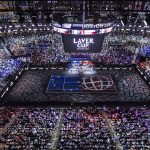In a merging of two historic sports brands, Wilson Sporting Goods Co., a division of Amer Sports Corp., reached an agreement to acquire Louisville Slugger, a division of Hillerich & Bradsby (H&B), for $70 million in an all-cash transaction.
Under the terms of the agreement, Wilson will acquire the global brand, sales and innovation rights to Louisville Slugger. The sale includes the brand's aluminum and composite bats, as well as its lines of fielding and batting gloves, protective gear and equipment bags.
As part of the deal, H&B becomes Wilson's exclusive manufacturing partner for wood bats, and will continue to produce Louisville Slugger bats at its downtown Louisville factory. H&B's Bionic Gloves division and Powerbilt golf brand are not part of the deal.
Amer will get an iconic 131-year-old brand to help reignite its ball sports division, which saw sales slide 3 percent in 2014. Closely-held H&B gains a larger global partner to help the historic brand better compete in the marketplace.
The purchase will make Wilson “by far” the largest baseball equipment company in the world, said Mike Dowse, president of Wilson Sporting Goods, Co. at a media event at Louisville Slugger’s headquarters in Kentucky. Louisville Slugger has $75 million in annual sales. Wilson’s baseball business includes Wilson, DeMarini bats and ATEC training equipment. Added Dowse, “We’ve become a real powerhouse.”
John A. Hillerich IV, CEO of H&B and great grandson of the founder, Bud Hillerich, said on the call that the deal joins “two iconic sports brands under one ownership” with Wilson a 101-year-old brand. He noted that many of the “greatest players in the game,” citing Lou Gehrig and Ted Williams, played with Wilson gloves and Louisville Slugger bats and many stars of today continue to use both, including Brandon Phillips, David Wright, Dustin Pedroia and Evan Longoria. Today, about half of all Major League Baseball (MLB) players use Louisville Slugger bats while a quarter use Wilson gloves.
Wilson is the official protective gear and ball glove of MLB while Louisville Slugger is the MLB’s official bag and bat. Said Dowse, “With those four official endorsements, we really can surround the ball player with some world-class best products.”
H&B will also maintain ownership and continue to operate the Louisville Slugger Museum & Factory and Gift Shop, which draws 300,000 visitors a year. Hillerich noted, “One of our goals that we keep a community presence that we’ve had for over 130 years and I think we’ve accomplished that.”
The company is owned by its founding family and a number of employees, and the deal still pends H&B shareholder approval. Robert W. Baird & Co. acted as exclusive financial advisor to H&B in the transaction.
Regarding the motive to sell, Hillerich remarked, “it was not a easy decision, nor one we took lightly.” For the past 131 years, the mission of the Hillerich family as “steward of the brand” was accomplished by keeping the company an independent family-run business.
“But today, things have changed and we think there’s another strategy,” said Hillerich. “Today we’re in a seasonal business of baseball and softball facing the challenges of today’s global business and we’re a family-owned company. And while our brand awareness and affinity is tremendous, unfortunately our resources are limited compared to larger multinational competitors.”
He said the challenges have been increasing steadily since 2000, when the two primary competitors in the bat space, Louisville Slugger and Easton, were joined by DeMarini and host of others. Reports indicated that Louisville Slugger struggled adapting to the shift from wood to metal in Little League and softball leagues. A massive recall in 2013 and several lawsuits tied to aluminum-bat incidents also challenged management.
Keeping the bat business in family hands had been a dinnertime topic for years, Hillerich said, but the family only began exploring a sale actively over the last year.
Hillerich noted that like Louisville Slugger, Wilson has a long history baseball and softball history with a strong research & development staff and structure “and the experience with big brands to create synergies and grow the business.” He added, “We believe we can create more opportunity for the iconic Louisville Slugger brand to make sure it endures the next 130 years.”
Also sealing the deal that sources told Sports Executive Weekly attracted several other major bidders was H&B’s comfort with Wilson’s management. Said Hillerich, “It’s incredible how close the two cultures are. We’re a family-run company that has a lot of long-term employees with a love of the game and love of sports and the same thing at Wilson. They have a lot of long-term employees who love sports and who love the brand so it’s really going to be a good marriage in my opinion.”
Dowse said H&B ”has created one of the most recognizable baseball brands in the world,” and the addition to Wilson’s portfolio will “enrich our company significantly, enhance our baseball and softball product offering at all levels of the game, and ensure we are delivering only the best performance products to athletes of every age.”
Beyond gaining the iconic brand, what attracted Louisville Slugger to Wilson was the Louisville manufacturing base. Said Dowse, “We have a real bias and like of U.S. manufacturing. We can’t say we do 100 percent U.S. manufacturing by any means but we are really committed to it.”
He noted that Wilson’s facility in Ohio makes all the footballs used in the NFL and NCAA. A Tennessee factory makes Wilson’s baseball, football and basketball uniforms. DeMarini’s metal and composite bat factory is located in Hillsboro, OR. Precor, also owned by Amer, has factories in Washington and North Carolina.
Wilson intends to grow the Louisville Slugger brand domestically and abroad utilizing its R&D, sourcing, distribution, and sales and marketing infrastructure, and the deep global resources of its parent company Amer, which also owns Salomon, Atomic, Arc'teryx, Mavic and Suunto. Dowse added, “We feel really good that we have the resources and ability to help accelerate this Louisville Slugger brand.”
Dowse noted that Wilson largely focuses on organic growth and hasn’t made an acquisition since buying DeMarini in 2000. However, when Wilson makes an acquisition, “We are all in. We don’t take this lightly when we partner with a new brand.”
He noted that DeMarini had quadrupled in size since its acquisition “and we see that same strategy and formula working extremely well for us for Louisville Slugger.”
As “passionate” fans of baseball and softball, Wilson is foremost committed to being “great stewards” for Louisville Slugger “because we really believe in putting brand first because the brand is our responsibility and what we need to pass on to the next generation of employees and ball players. We’re really committed to growing this Louisville Slugger brand and that is what really attracted us to this new partnership.”
He likewise said while Amer always looks for premium brands to acquire, the cultural fit with H&B clicked. Said Dowse, “We are truly married to the Hillerich family through this partnership and we look for this relationship to last decades into the future.”
Of H&B’s 273 employees, 177 will remain with the company, 44 will join Wilson and 52 will be laid off, a consequence Hillerich described as “probably the most painful part of this transaction.” The displaced employees are mostly in back-office areas as such as investment technology and accounting where Wilson brings synergies. Said Hillerich, “It will be a much more efficient company.”
Among other details, Louisville Slugger will remain a stand-alone brand with no plans to co-brand with the Wilson name. No plans have even been explored about incorporating Wilson at the Louisville Slugger Museum. Said Dowse, “We feel they’re two distinct brands and have different consumer connection points.”
Wilson is exploring making Louisville Slugger’s metal and composite bats, which are made in China, at Wilson’s plants in the U.S. and elsewhere.
Hillerich said a number of lawsuits over injuries caused by aluminum bats played “a small part” in the sale because they had been a “distraction” to management in recent years. He added, ”We think those issues, knock on wood, are behind us.”
Amer expects the acquisition to be neutral to its EBIT margin excluding non-recurring items in 2015 and accretive as of 2016.
“We will realize important operational scale and synergy benefits as well as opportunities to further leverage the Louisville Slugger brand,” said Amer Sports President and CEO Heikki Takala, in a statement. “We are proud to become the home for another iconic consumer brand, and we look forward to building it toward an even greater future.”
Joe Pellegrini, managing director at Robert W. Baird, said the deal was one of the most complex he’s helped finance. Challenges included extrapolating numerous licensing agreements intertwined with a 131-year old company but particularly enabling the Hillerich family to continue to run the wood bat factory and museum while giving Amer “the protection it needs so it can control the brand’s identity and how the brand is going to be used in the future.” The deal was also an “emotional one too” with the family and the brand's importance to the city of Louisville.
For retailers as well consumers, the Wilson/Louisville Slugger combination should create a “bigger more sophisticated player” that won’t dominate the market with other major players on the scene such as Performance Sports Group, which owns Easton and Combat; Jarden Corp., which owns Rawlings, Worth and Miken; and Mizuno.
“I think there are multiple winners,” said Pellegrini of the deal. “Retailers end up with a stronger supplier. The family takes care of the legacy of Louisville Slugger with a new partner that can help the brand thrive. And Wilson gains the scale and size to continue to be one of the true leaders in the diamond sports.”















